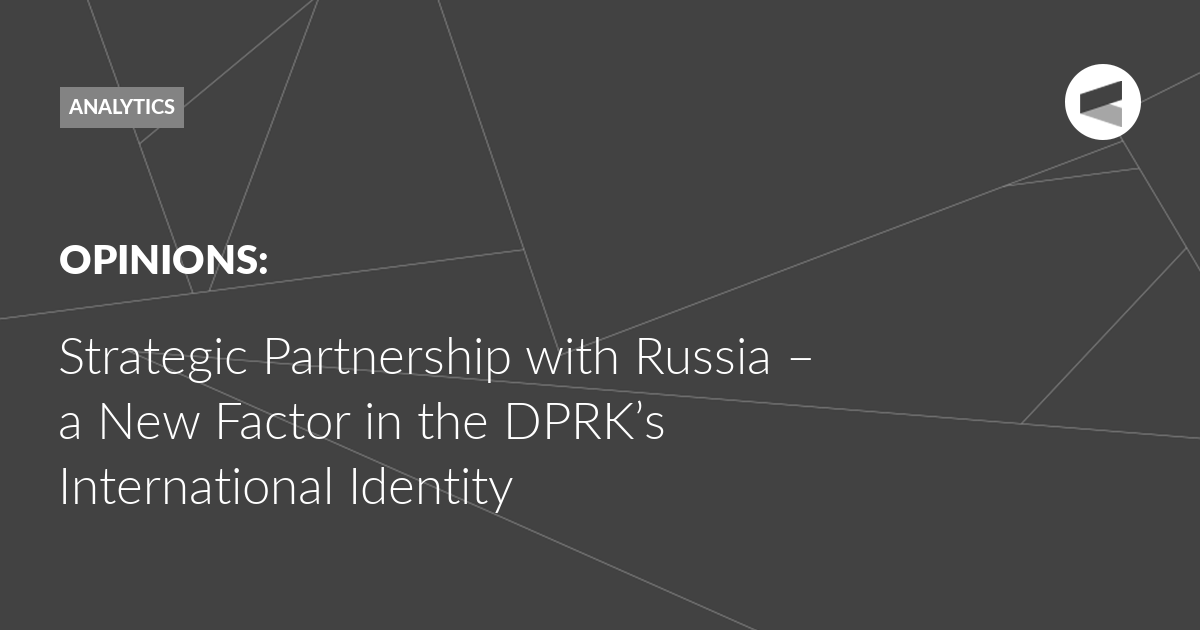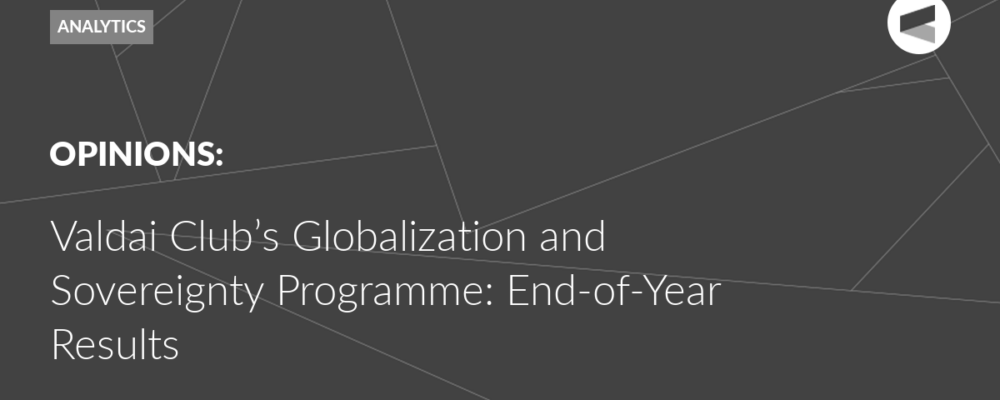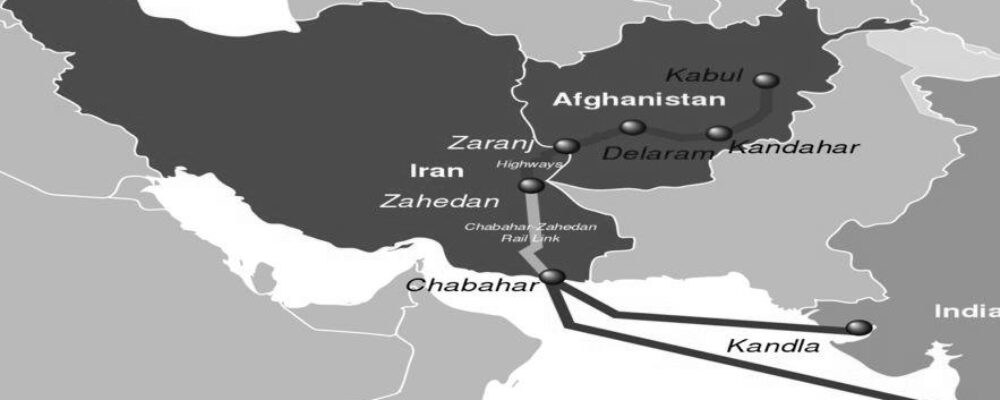Over the past year since the signing of the Treaty on Strategic Partnership between the DPRK and Russia in June 2024, it has become clear that while for Russia it resulted in direct practical results, for the DPRK the new alliance relations not only bring practical benefits, but have also become an important factor in acquiring a new identity on the world stage, Georgy Toloraya writes.
Conjugation of foreign policy concepts
The initial Western assessments that Pyongyang almost forced Moscow to take on obligations to support it “in exchange for artillery shells” and that this would allegedly increase the “aggressiveness of the DPRK”, that the treaty is “unilateral” have not come true. In fact, Pyongyang showed exceptional restraint and a responsible approach, despite the seemingly temptation to try to destabilize South Korea – the unprecedented political crisis in Seoul. And the treaty allowed Russia to receive not just unprecedented military support in military operations under Art. 4, but a loyal ally. Moreover, the DPRK’s resilience is based not on opportunistic considerations, but on a well-developed conceptual approach.
It was formulated by Kim Jong-un himself at the Russian embassy in the DPRK on May 9, 2025, where he arrived with a retinue that included the “crown princess” and senior courtiers. The celebration on Russian territory became a “surrogate” for his stay on Red Square in Moscow (where, in response, Vladimir Putin personally greeted the Korean military leaders who took part in the military operations in the Kursk region).
The thoughts expressed by Kim are very close to the point of view of Putin himself – the USSR “saved peace on this planet and human civilisation”, “corrected the dangerous course of world politics and brought an epochal victory to humanity”, including the liberation of Korea. Russians and Koreans realized “that protecting their sovereignty and dignity is more valuable than building a place for comfortable life”, and today they must together “resist the challenge of neo-Nazism” – this is why he ordered “the armed forces of the republic to join the actions of the armed forces of Russia.”
During his visit to the DPRK in July, Sergey Lavrov also spoke about “real brotherhood in arms”, readiness to “defend the interests of the DPRK”, “jointly resist the hegemonic aspirations of extra-regional players”.
Thus, as a result of the new partnership with Russia, the DPRK has defined its identity as an active actor in the global process, one might say, a kind of coalition for a new international order, against neo-Nazism and neocolonialism, Western dominance. Thanks to this, as one of the experts of the New York Times put it, “the DPRK is entering a strategic golden age.” “This is not a transactional alliance – it reflects the reorientation of world power, and North Korea is positioning itself as an indispensable element of this new order.”
What did the alliance with Russia bring to the DPRK?
The security of the DPRK has been significantly strengthened, since, in addition to the presence of nuclear weapons, the DPRK received a guarantee of “protection” from the nuclear superpower, repeatedly emphasized by the highest Russian leaders.
Russia has de facto recognized the legitimacy of Kim Jong-un’s concept of the existence of two separate, unfriendly states on the Korean Peninsula and the rejection of the idea of the unification of Korea, under the slogan of which South Korea has been planning to absorb the North for decades. The new “link” with the Russian Federation is designed to stabilize the region, ensure a balance of power based on the principle of indivisible security, “and generally lays the foundation for building a new Eurasian security system.” But Pyongyang does not yet feel the need for multilateral formats (it even refuses to participate in multilateral events where it was previously present), this is a matter for the future.
The DPRK’s position in international organisations, especially in the UN, has been strengthened due to the fact that it shares with Russia almost all approaches on global platforms and receives its support in the Security Council.
Russia, in turn, has recognized the impossibility of the “denuclearisation” of the DPRK, which was previously mentioned in UN resolutions, it also began to proceed from the actual failure of the policy of sanctions against the DPRK, including those agreed upon through the UN, although for tactical reasons it is not ready to raise the issue of abandoning them within the framework of international formats.
As a result, gaps have appeared in the line pursued by the United States and its allies on the diplomatic isolation of the DPRK. The country’s international contacts have become unprecedentedly active, primarily due to the unprecedented intensification of diplomatic, political, and humanitarian exchanges with Russia, which has become a wide-open “window to the world” and international exchanges.
The DPRK has become a new powerful player in the security and military spheres, participation in the SMO has become “a military gold mine. It gave the DPRK the opportunity to test weapons and personnel, as well as to gain valuable knowledge about modern warfare. Its military industry began to revive thanks to the insatiable hunger for artillery shells and missiles in Russia, as well as the transfer of military technology in the opposite direction.”
According to Western data, more than 20 thousand containers were delivered to Russia (these data can be considered reliable), which could hold from 4.2-5.8 million shells of 122 and 152 calibers, and according to some estimates even 9 million, MLRS, barrel artillery, ballistic missiles were also delivered.
The unprecedented use of DPRK troops in real combat operations abroad in a decade has highlighted the country’s role as a “global military operator” that can project military power far beyond its borders and areas of direct involvement. Following the participation of DPRK troops in the campaign in the Kursk region, including in connection with the losses incurred, shortcomings in combat training and tactical issues were exposed. As a result, a large-scale restructuring has begun in the DPRK armed forces.
The “Kursk expedition” had enormous moral and political significance, including for ordinary Koreans: aware of the bitterness of losses, they feel more pride in the fact that they provided assistance to a great power. This rather strengthened Kim Jong-un’s position in society than caused discontent, especially since a massive propaganda campaign has now been launched around the heroism of Korean fighters as a role model, and large-scale plans to perpetuate their feat have been announced.
The West claims that since November 2024, Russia has provided North Korea with short-range air defense systems and advanced electronic warfare systems, including jamming equipment, using Russian cargo aircraft, and has also transferred operational knowledge. Russian sources deny a number of these reports. The Russian Federation is unlikely to transfer to the DPRK technologies and equipment related to intercontinental ballistic missiles (which pose a direct threat to the United States), nuclear weapons and any types of WMD. At the same time, it seems that the provision of technologies and know-how related to the satellite program is not completely prohibited in the eyes of Russia, since the exploration of outer space, from the point of view of Russia, is the legal right of the DPRK.
The transition to an allied relationship for the DPRK also had a purely economic dimension; direct and indirect trade increased. According to Western estimates – although world prices for similar products are completely inapplicable in this case, in reality the rates for mutual settlements are different – at the present moment the DPRK’s gross income from the supply of military goods may amount to from 2.5 to 7 billion dollars. Many Russian food and consumer goods have appeared on the DPRK domestic market, and supplies from China have also increased. Perhaps some of them are financed by these receipts.
Oil products were supplied from Russia – according to satellite data, a dozen different tankers arrived at an oil terminal in the Russian Far East a total of 43 times between March and October 2024, with more than a million barrels of oil delivered to North Korea. Among the projects that have been launched, we can mention the start of construction of a road bridge across the Tumangan River, Russia provides assistance in healthcare, in the agricultural sector. Tourism is developing. There are good opportunities for cooperation in the field of education, contacts have begun between universities, the number of Korean ones has increased.
Sending labor abroad plays an important role for the DPRK, and Russia, judging by indirect data, has made certain concessions in this regard. The Western media claim that Russian companies have applied to attract 153 thousand North Korean workers, and that by the end of this year this number could reach 50 thousand people more, although official data for 2024 indicate the arrival of only about 13.3 thousand people, a significant part of them – on student visas (7.9 thousand people) – the issuance of work visas is prohibited by UN sanctions.
What’s next?
The Russian-North Korean alliance could become a factor in the creation of a new system of security and cooperation in Northeast Asia. Of course, it should be designed taking into account the legitimate interests of all partners present there. Given the new balance of power and interests, such a model can become a kind of model for other regions of the world, where the contradictions of the two “camps” seem insurmountable for now.
On the part of Russia, China and the DPRK, the interests are quite clear, the goals have been formulated many times – but, unlike in the past, they are supported by the force factor. This is peaceful coexistence, refusal to impose one’s ideology and system, attempts at forceful solutions, settlement of existing problems by political and diplomatic methods. This also applies to the nuclear issue, which undoubtedly worries Russia from the point of view of strategic stability and non-proliferation. The reality is that new approaches are needed, for example, measures to limit and reduce strategic weapons on a contractual basis, taking into account the legitimate concerns of all parties involved and non-proliferation guarantees.
It is time for the opposing side, and first and foremost the US-Japan-ROK “troika”, to abandon the exhausted concept of “regime change” in the DPRK and the de facto subordination of the North within the framework of a more general idea of confronting China and Russia. Russia and the DPRK recently stated that “the reason for the growing tension in the subregion is the build-up of military activity by the US and its allies”. Thanks to the new situation, including the more sober position of the current administrations in the US and South Korea, a window of opportunity for new solutions may appear.
The Valdai Discussion Club was established in 2004. It is named after Lake Valdai, which is located close to Veliky Novgorod, where the Club’s first meeting took place.
Please visit the firm link to site






